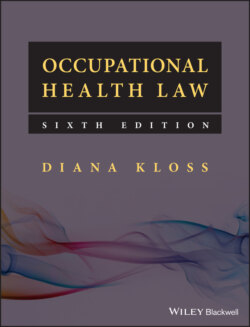Читать книгу Occupational Health Law - Diana Kloss - Страница 15
Judicial review of administrative action
ОглавлениеThe sovereignty of Parliament means that any decision of a UK court can be overruled by an Act of Parliament, but not that the Executive has a free hand. The rule of law subjects public authorities, up to and including Ministers of the Crown, to the jurisdiction of the courts, sometimes to their considerable annoyance. The power of judicial review of administrative action is conferred on the Administrative Court, part of the High Court. The citizen may petition the judges for justice in the same way as in past centuries he would supplicate the sovereign. The primary tasks of the judges in a judicial review case are to interpret statutes, control unreasonable exercise of discretion, examine the validity of secondary legislation, determine the fairness of procedures and prevent bias. Occupational health professionals will be familiar with these procedures if they work in the public sector, because, for example, a decision to refuse a pension may be appealed to the Administrative Court.
One such example was Commissioner of Metropolitan Police v. Stunt (2001). Stunt was a former police officer who was medically retired in 1996 after 28 years in the force. Under reg B4 of the Police Pensions Regulations 1987 a police officer became entitled to an additional injury pension if he was ‘permanently disabled as a result of an injury received without his own default in the execution of his duty’. Stunt retired as a result of a permanently disabling psychiatric injury suffered in reaction to an internal police investigation in which he was accused of misconduct. He had arrested a headmaster accompanying a group of pupils outside the Palace of Westminster. A disciplinary hearing was in fact never held because Stunt went off sick and never returned. Both the selected medical practitioner and the independent medical referee decided that he had not suffered an injury on duty. He asked the Administrative Court to rule that the doctors had wrongly interpreted the regulations, but the Court of Appeal eventually held that they were right: an injury which results from subjection to disciplinary proceedings cannot be regarded as received in the execution of duty. In 2019 the decision of the Prime Minister to advise the Queen to prorogue Parliament was held unlawful by a unanimous Supreme Court of 11 justices (Miller v. Prime Minister (2019)).
